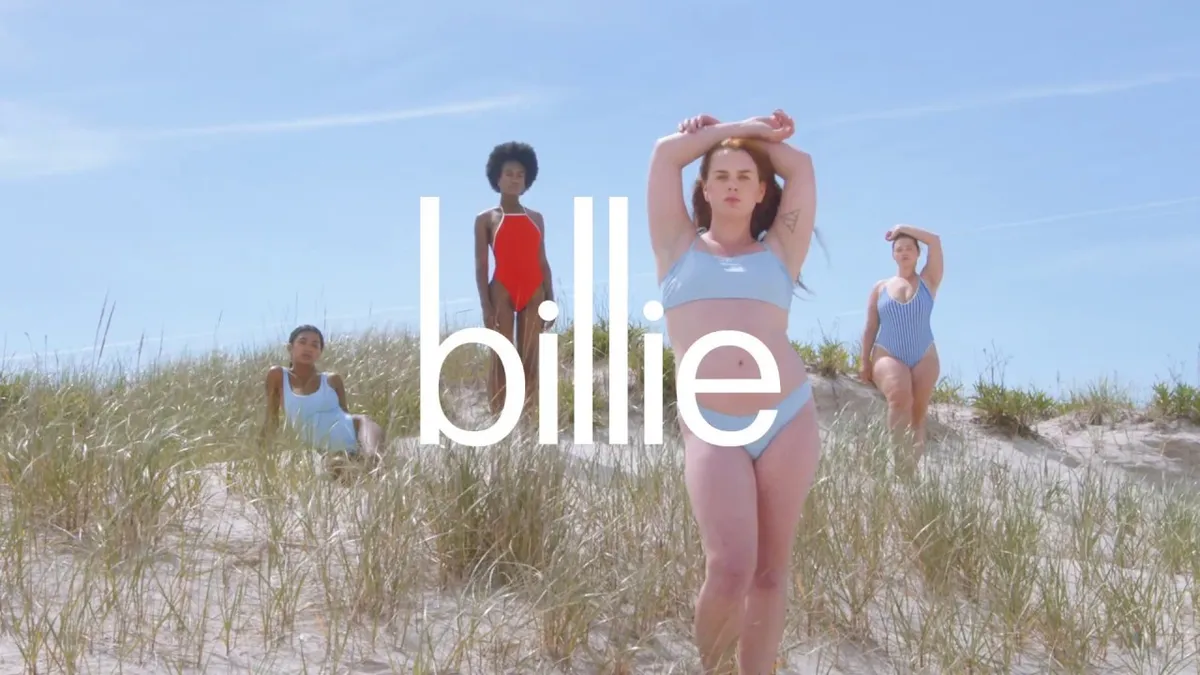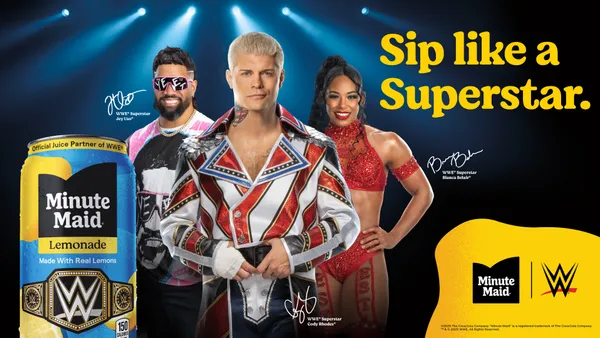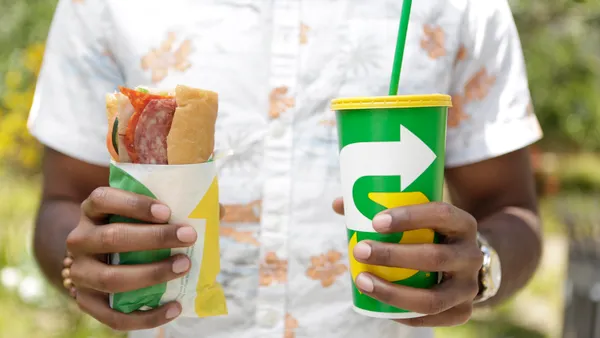Dive Brief:
- Razor brand Billie launched a summer campaign to normalize pubic hair, per news shared with Marketing Dive.
- The campaign, timed to coincide with 4th of July weekend, follows the brand's Project Body Hair effort a year ago to directly address the subject of women's body hair, includes a new video, "Red, White and You Do You."
- Directed by photographer and director Ashley Armitage, who also directed Project Body Hair, the video shows women sporting all kinds of body hair styles at the beach, ranging from what the brand describes as "bushy, bare, or anything in-between."
Dive Insight:
The female-oriented razor brand Billie is tackling the expectations of traditional razor ads, as much as pitching its own product. In traditional marketing for female razors, for instance, women are always shaving hairless legs. By celebrating female body hair, and declaring that what parts women shave is a choice up to them, Billie is directly confronting traditional depictions of femininity in order to forge a bond with its customers.
Like other direct-to-consumer (DTC) brands, Billie's main brand goal is to create a personality, around which it can assemble a tribe of customers who feel the brand speaks for them, according to Forrester VP and analyst Dipanjan Chatterjee. In an age when a competitor's products are only a click away, the creation of a brand personality may be marketing's central role. Personalities among brands, like personalities among people, creates a distinguishing identity that helps a brand stand out and become part of a person's collection of value statements.
Billie is not alone in its efforts against unrealistic body images for women. CVS Pharmacy announced last year that it would no longer alter images in its beauty ads, and would use only unaltered images by next year. Also in 2018, Dove introduced its "No Digital Distortion Mark" indicator to show that an image has not been digitally modified. Similarly, Swedish feminine-care brand Libresse has undertaken provocative campaigns that have emphasize real women's bodies.
The efforts of Billie and others are in line with industry-wide initiatives to improve marketing. Unilever asked content creators to remove any outdated stereotypes in its marketing, part of a previously launched Unstereotype effort. Venerable razor brand Gillette has also challenged gender stereotypes.
Some of these efforts by CPG giants has come to be better in line with DTC brands like Billie. Gillette's market share, for example, dropped from 70% in 2010 to 54% in 2016. Most of the difference went to DTC razor brands Dollar Shave Club, Harry's and others, said research firm J.D. Power.














